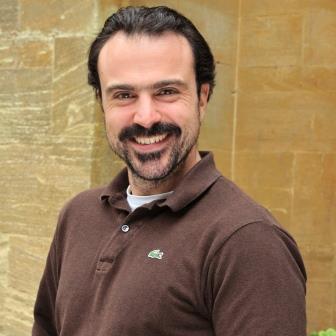A child’s first three years of life are crucial to lifelong health, but to make a lasting difference, global child development must focus on the first 21 years.
That’s a key argument in a new book the World Bank publishes today which features research by a leading economist at Brunel Business School.
Aimed at helping children in some of the world’s poorest countries, Disease Control Priorities has a chapter from Senior Economics Lecturer Dr Andreas Georgiadis.

Launched this week by World Health Organization Director-General Dr Tedros Adhanom Ghebreyesus and The Lancet Editor, Richard Horton, the book is for doctors and medics in poorer countries, governments and aid organisations.
With Disease Control Priorities now in its third edition, this is the first time the book has looked at the link between child health and cognitive and other kinds of development.
Introducing it, former Prime Minister, and now United Nations special envoy for global education, Gordon Brown calls for world investment across education, health during childhood and adolescence. “Children who are in good health and appropriately nourished are more likely to participate in school and to learn while there,” he said. “In human development, education and health are two sides of the same coin.”
Dr Georgiadis’ chapter is about the difference things like food and micronutrient supplements and deworming can make to children’s growth and cognitive development.
He said: “it highlights the need for a shift of focus of interventions to promote child health and development from the first 1000 days of life to the 8000 days of childhood and adolescence. Focus on the first 1000 days is an essential but insufficient investment.”
The book is available on Amazon from £26.18.
Reported by:
Brunel press office,
Media Relations
+44 (0)1895 266867
press-office@brunel.ac.uk